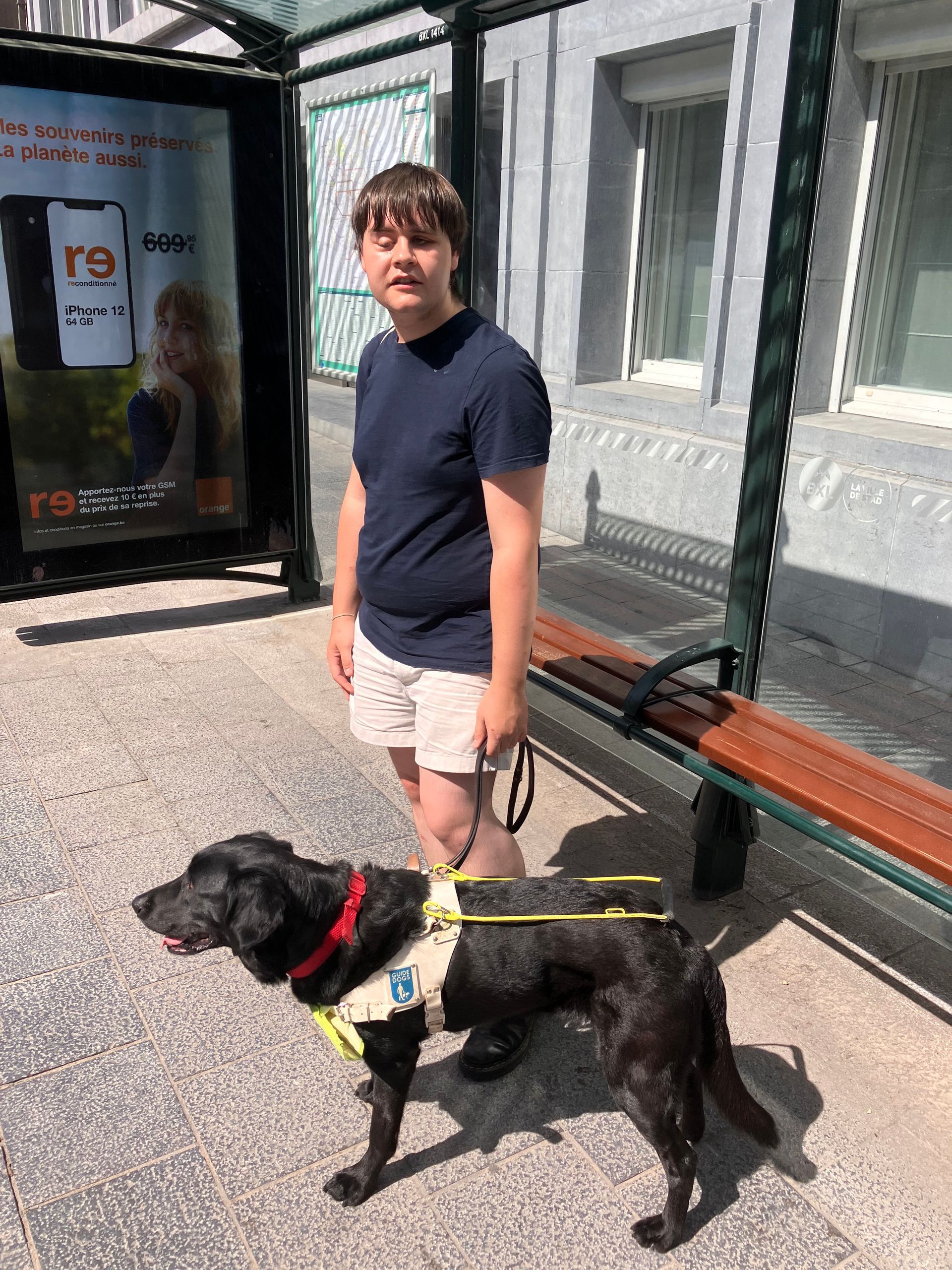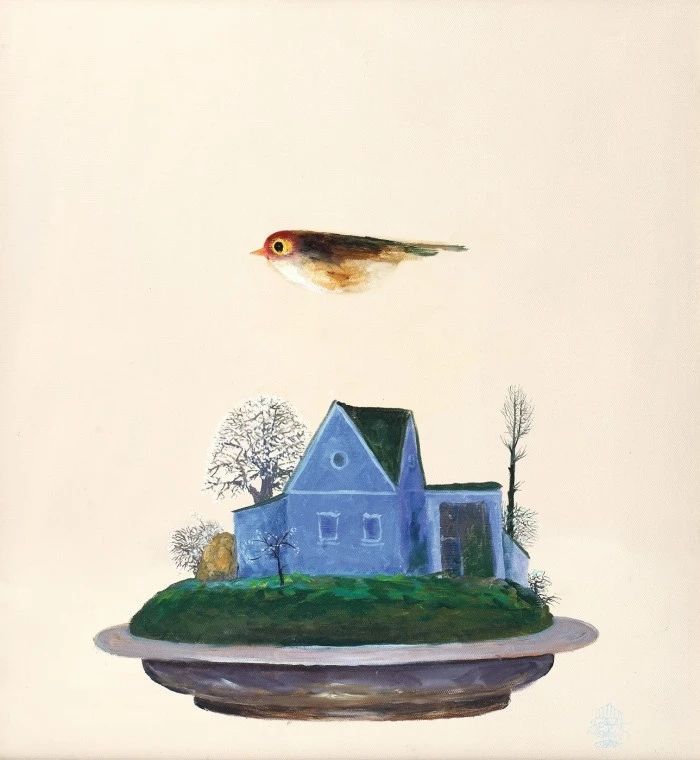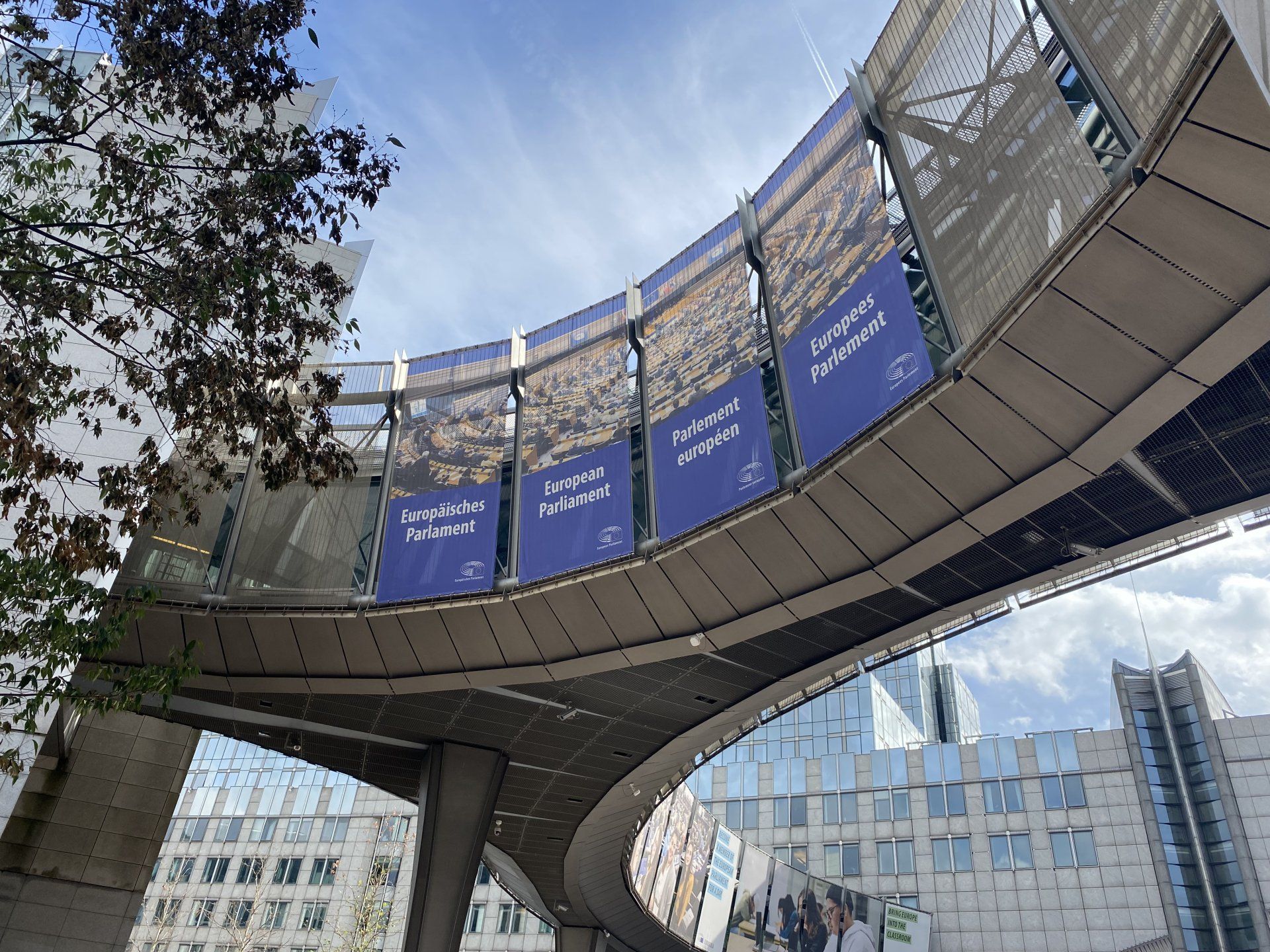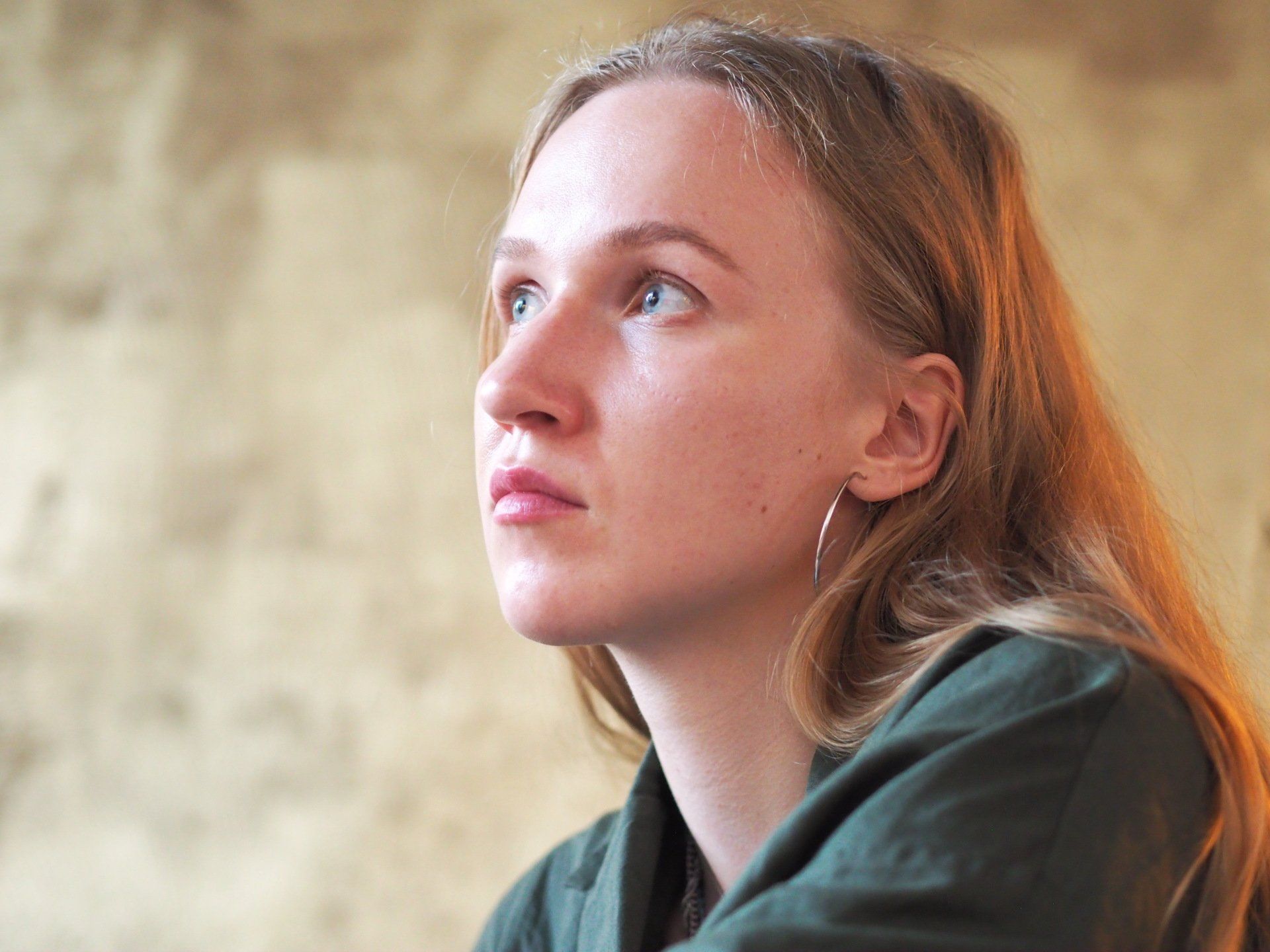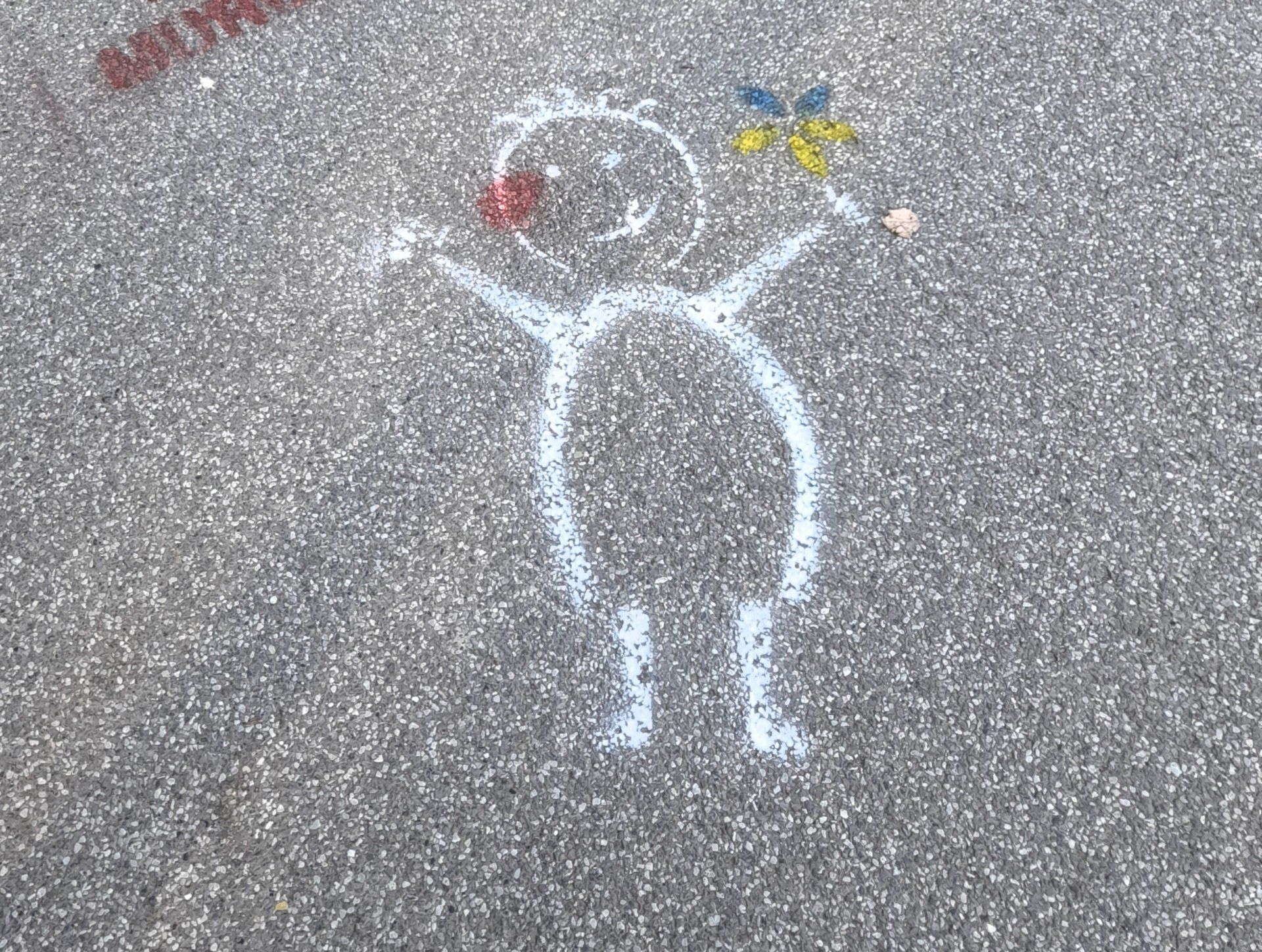Do you know what I mean? What we lose in translation

Have you ever noticed that some polyglots love to tell you about the words that exist in their language for concepts that don’t exist in yours?
A woman I knew whose parents were Dutch never got sick of telling us that there was no way we could ever fully understand what gezellig
meant, and that English was a very much poorer language for having no equivalent to this most exquisite concept. I’m going to go out on a limb and say ‘cozy’ pretty much covers it. Sorry, Briona.
Loan words from one language to another often indicate this phenomenon - is there an English word to cover the concept of a doppelganger, for example? I mean sure we have lookalike, but it hardly has the same sinister undertone. Makes you wonder whether doppelgängigkeit
was a particular problem at some time in the German-speaking world, that they needed to give it a name.
I got thinking about all of this while reading about a study that looked at emotion words
across nearly 2,500 (!) languages*. The researchers showed that the way we understand such fundamental concepts as ‘love’ or ‘anger’ differs depending on our native language.
Surprise!
Take surprise for example. Speakers of Austronesian languages such as Hawaiian, closely align the feelings of surprise and fear. If you, on the other hand, speak a Tai-Kadai language from South-East Asia or Northern India, you’ll tend not have this negative association with fear but to experience surprise as a neighbouring concept to hope or want.
Closer to (my) home, the article quotes Maja Konkolewska, a Polish/English translator and interpreter who believes the emotions we feel are connected to the experiences of our ancestors. “I always struggle to translate the word vulnerable to Polish because there is no direct equivalent,” she says. “When I listen to my grandmother’s stories about her childhood during the second world war, I wonder whether there was no space for vulnerability in Polish history.”
Or indeed, how the Dutch have laboured on so long without a proper word for cozy.
Not so surprising
Honestly, the lack of direct fit between different languages’ expressions for basic concepts shouldn’t come as too much of a surprise. So often whether we’re talking, writing or texting between native speakers of the same language, meaning fails to be conveyed.
An acquaintance of mine frequently refers to my violin as a banjo – I suspect this might be supposed to be humorous, or perhaps a coping mechanism to disguise a failing memory. But I’m not a very good violinist, and calling my hobby by the wrong name can feel calculated to belittle my abilities or my passion. Especially because the banjo is such a (wrongly) sneered at instrument.
Another friend recently asked me what new instrument I’m ‘playing around with’ at the moment, which again seemed to trivialise my endeavours on the mute cornett. Now, the fact is that in English we do play an instrument – same as all the other European language families** and likely further afield. That’s a fairly objective fact. Playing around introduces an element that’s more subjective. It could mean experimenting, seeing what you can do with something. It could also mean picking something up frivolously, with no intention of ever mastering it.
If I’m generous – some would say rational – I’ll assume that my friend wasn’t shooting from below the hip to belittle my latest musical fad. Sadly as a Scorpio, I’m not rational and I will always assume you are trying to take me down, however subtly or innocently you appear to do it.
Joking aside, the point is that as soon as our language leaves our lips, our pen, our fingers or thumbs, it belongs to our audience or our interlocutor as much as it does to us. The impact it makes on them can be instantaneous, powerful and irreversible
– or at least very difficult to take back, should that prove necessary.
Clean language
Clean Language can help us move past misunderstandings like this. It involves using a person's own words to direct their attention to some aspect of their experience. It was developed by David Grove who found that it is useful to focus attention on the metaphors people use naturally to describe that experience. Clean Language enables people to discover and develop their own symbols and metaphors, without contaminating these with any judgments, assumptions or opinions introduced by an external influence, such as a conversation partner.
Clean questions are used in many different fields, including coaching, therapy, business, organisational change, health, education and as a research interview technique.
Using Clean Language questions, I could find out from my friend what he meant when he asked me what new instrument I’m ‘playing around with at the moment’. I may find out that the ‘around’ came from trying to take me down, or from a place of recognising that I play multiple instruments at one time, or from somewhere completely different.
What Clean Language will allow me to do is find out about my friend’s experience without clouding it with mine. I can then explain my experience to him, and come to agreement on how each of us experienced the moment. Yes, it may seem like a long winded way of going about things. But when it comes to working with others, we need to recognise when we’re making assumptions and work with each other meaningfully to create the space to understand differences and work together for change.
Takeaways
So here’s some ideas I am left with after mulling all of this over.
First, in the words of Erikah Badu, “keep in mind that I’m an artist, and I’m sensitive about my shit!”.
Remember that people do not use words in the same way as you, even if you’re ostensibly speaking the same language. Be curious and find out what is going on for the other person, in their own words.
Second, if our aim is to include, we need to be aware that conversations in English will exclude many voices point blank, while introducing an unlevel playing field for those who remain. Remember that even people who are comfortable in English - native speakers included - might not be using the same words in the same way as you.
Translators and interpreters can help, but those guys are expensive. More importantly they slow down the pace of discussion. In our world of rolling news and lightening quick surges of opinion on social media, that means you lose a lot of your audience from the jump. The pace that artificial intelligence is developing in translation and even real-time audio translation is remarkable, but comes with its own limitations and dangers.
Finally, if we want to talk constructively with anyone at all, but especially if we know we’re coming from different standpoints, we need to establish a shared linguistic framework. We need to be sure that we agree about concepts, that we’re not antagonising one another every time we open our mouth. Rather than thoughtlessly shutting down conversation, let's open our minds and our hearts to other points of view. Share your ideas on how to do that on our Twitter!
If any of this has resonated with you, then you know that finding ways to talk effectively through the cacophony of today’s politics is absolutely vital if we’re going collectively solve the multiple crises that are threatening humanity and our planet today.
Flare is working to do just that, but our work costs money. If you are able to give a little to help us fight the good fight, please donate here; every little helps.
We’d love to hear your thoughts and reactions to this blog post. Join the discussion on our Twitter here.
--
* For the long read, check out the full study
in Science Mag, for language geeks it’s truly fascinating.
Resources
• From Contempt To Curiosity, by Caitlin Walker
• So ... You want to be #DramaFree, by Caitlin Walker & Marian Way
• Metaphors in Mind, by Penny Tompkins and James Lawley
• Clean Approaches for Coaches, Marian Way
By Joe Carew
Flare Blog
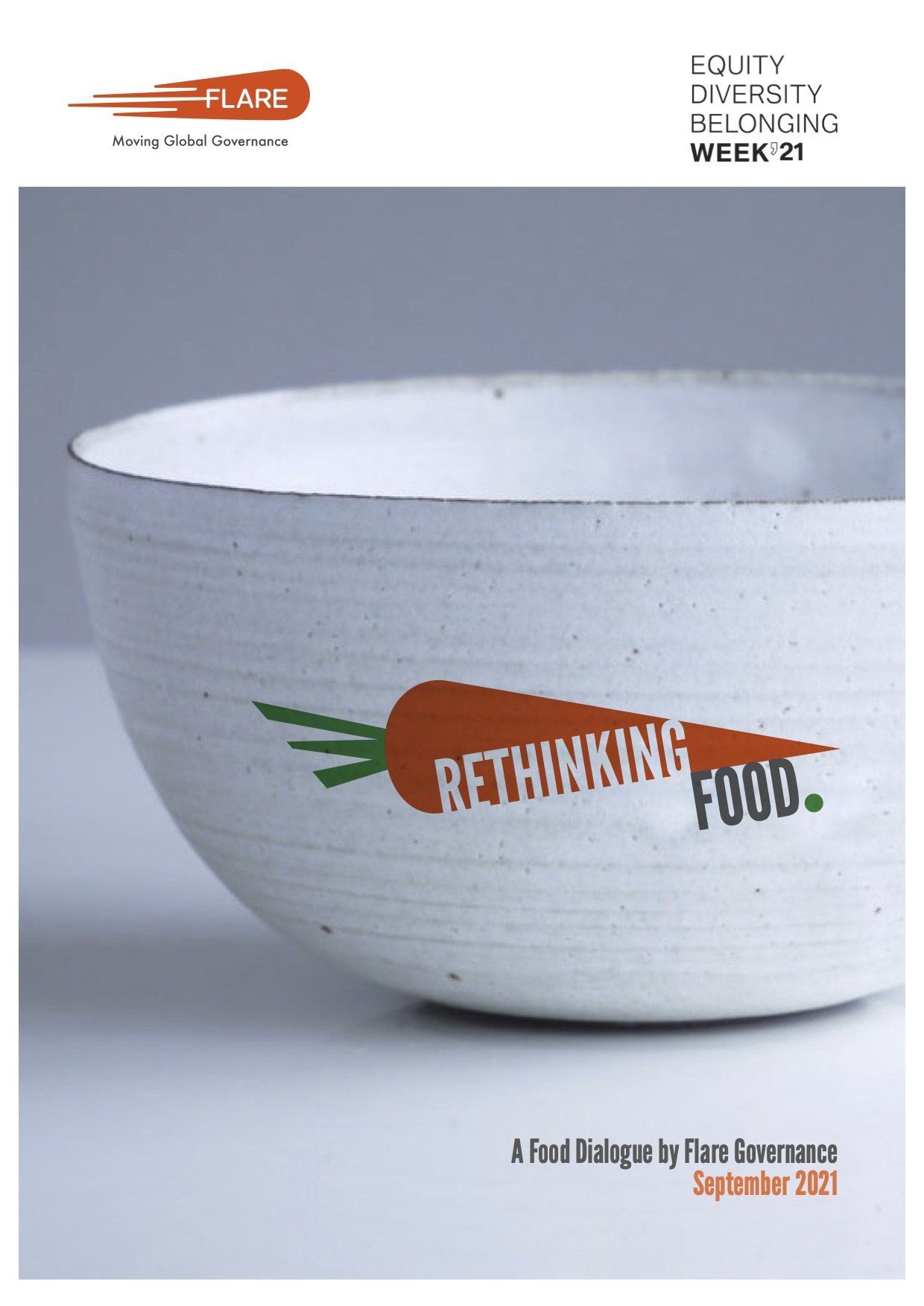
Is making us hungry. Read about how we re-imagined the global food system in 90 minutes in our latest report, available here . This stuff matters. Rethinking is about making space for hope, changing the story by which we live. Moving from me to us to our whole society. We take things that feel stuck and fixed and paint the picture of how they can be radically better. We do it together as equals, no matter our level of knowledge and experience. At the heart of Rethinking we’ve planted a simple seed of an idea. If we agree where we need to get to, we can find our way there. We can work out how to make change happen when we allow ourselves to imagine how things should be. The essential first step to get over our fear of being stuck in the now, in how things are, in feeling there’s no choice and no alternative – is to say what should be. It sounds banal, but it’s actually quite hard. We had a go during Rethinking food a couple of months ago. We’d spent a little while in a small group talking about access to food, injustice, food deserts, class, food snobbery and a multitude of ills. We were stumped when we tried to turn things around and say what “justice” looks like for an overweight single mum working two jobs and living in a “food desert” in the USA. We could see what the multiple injustices were, but naming what should be took us a little while. What should her life be like? What needs to happen to make that possible? You might recognize that pattern from how we approach challenges in public discourse. We’re very used to denouncing bad things, calling emergencies, demanding change from others. It’s a lot harder to name what should be, what the good society looks like, how we will feel when we’ve righted social and environmental wrongs. And once we’ve done that, I promise you, we’re cooking with gas (or something less planet heating). Over the last two years, we’ve developed a simple three-step method that takes people from hopelessness to action, from lone voices to collectives, from me to us. It’s not voodoo. It’s just humans talking, being brave and being nice. We think it can change society. No apologies for optimism. We’ve done it for football and eating , two things that feel like they belong to our private lives, but that are the most powerful embodiment of our moral systems, because we feel them viscerally. We’ve got a couple of high stakes experiments lined up for the end of 2021. If you’re tired and sad and despondent and you despair at the state of the world, please join us, fund us , talk drop us a line on hello@flaregovernance.eu . We have hope flowing out of every pore.

By Lauren Brown Productivity. It’s one of those words that is thrown around – ‘Oh I’ve had such a productive day’. It’s one I’m guilty of using, on those rare occasions where I feel as if my life is tied up into neat ends. It’s the feeling of satisfaction when you manage to get all those tiny tasks on your to-do list ticked off, eat healthily and manage to engage in one of those ‘mind-improving’ habits you set out to do at the beginning at the year. It’s definitely not limited to this sense of personal growth and improvement either but tied inherently into our working lives and culture. It rarely gives us time for rest but instead ‘more’. This productivity culture permeates our lives and is often held up as the way to have more time – that precious ‘more’ time to spend on things we truly love. But as Anne Helen Peterson points out, its mandate is ‘never ‘You figured out how to do my tasks more efficiently, so you get to spend less time working’. It is ‘you figured our how to do your tasks more efficiently, so you must now do more tasks’’. It’s the sense that if you can get that one extra task done a day, you will be far better off for it. And for many, the rewards that come with these tasks (especially those in precarious situations, for whom productivity is just a way to survive basic economic needs) are maybe not all they seem. It’s also tied up in ideals of self-improvement. ‘Oh, if I could just be more productive with my time, I’ll manage to squeeze in Duolingo’. We are taught we must maximise our output (and our consumption for that matter) to be the best we can be, at all times, in every potential area. But we all have a ceiling to this – no one can work infinitely, and at some point, diminishing returns sets in. There’s only so long I can pretend my endless to do list is improving my life, instead of stressing me out that once again I haven’t done X Y and Z. Whilst I could happily spend the rest of this blog theorising how neo- liberalism is a key part of this (don’t worry, I won’t), this sense of disquiet around working cultures has been thrown into sharp relief by the pandemic for many. Debates over whether workers get more done at home or the office are prominent in the news, accompanied by endless articles on burnout culture. Businesses are testing out four-day work weeks – with the caveat that this is obviously to improve productivity, though admittedly through a method that involves ‘working better’. All of these stories question the idea of boundaries. Whether these be physical (home vs an office environment) or mental (when do we ‘switch off’), the pandemic has led to discomfort over our current working practices. I’m a case in point. During the first lockdown, I felt I needed to produce at ever higher rates in order to ‘secure my future’. So I regularly worked 40+ hour weeks (often splitting my time between my supermarket job, research internships and volunteering) as well as finishing my studies. I thought it was normal, desirable even, to only have one ‘proper’ day off a week. I believed this was the best way for me (a busy person even in ‘normal’ pre-pandemic times) to stay sane, to cope with the ever closing walls of the world. But when I compare this to the third lockdown I experienced here in the U.K., this outlook seems obscene and naïve. I struggled to concentrate through my degree and the drudgery of life in my small four walls. However, I still felt I needed to produce at the levels I had been, to make this lockdown a success. I felt I needed to do ‘more’ – I had the time, why wasn’t I doing it? And that’s what is so all-encompassing about this productivity culture. It’s prevalent and fetishized (what do you mean, you don’t have a side hustle?). There’s, as Pandora Sykes identifies in her book Are We Doing it Right?, a status to being busy and getting lots done. It’s also a way of coping with insecure futures and bleak employment prospects. Admittedly this was heightened by a mild personal panic that came with the realisation I was soon to be an unemployed postgraduate student. But is it healthy? It's hard to admit that maybe you can’t improve in every section of your life. That there’s a point where burnout sets in. That maybe you don’t need to learn French or do that typing class, unless you really do have the capacity and desire for it. Maybe we shouldn’t have to be excessively productive. Maybe we should talk about what we actually want for our futures and challenge what we see as normal. I’m not saying productivity is inherently evil and I can’t pretend I’m not sucked into the machinery that surrounds productivity culture. But as time goes on, the apparent need to produce and consume more is one that becomes more questionable to me. At what point can I say I’ve done enough? I might never be able to fully manage the expectations of myself and workplace culture with what actually works for me, but through talking it through, I can start to try.
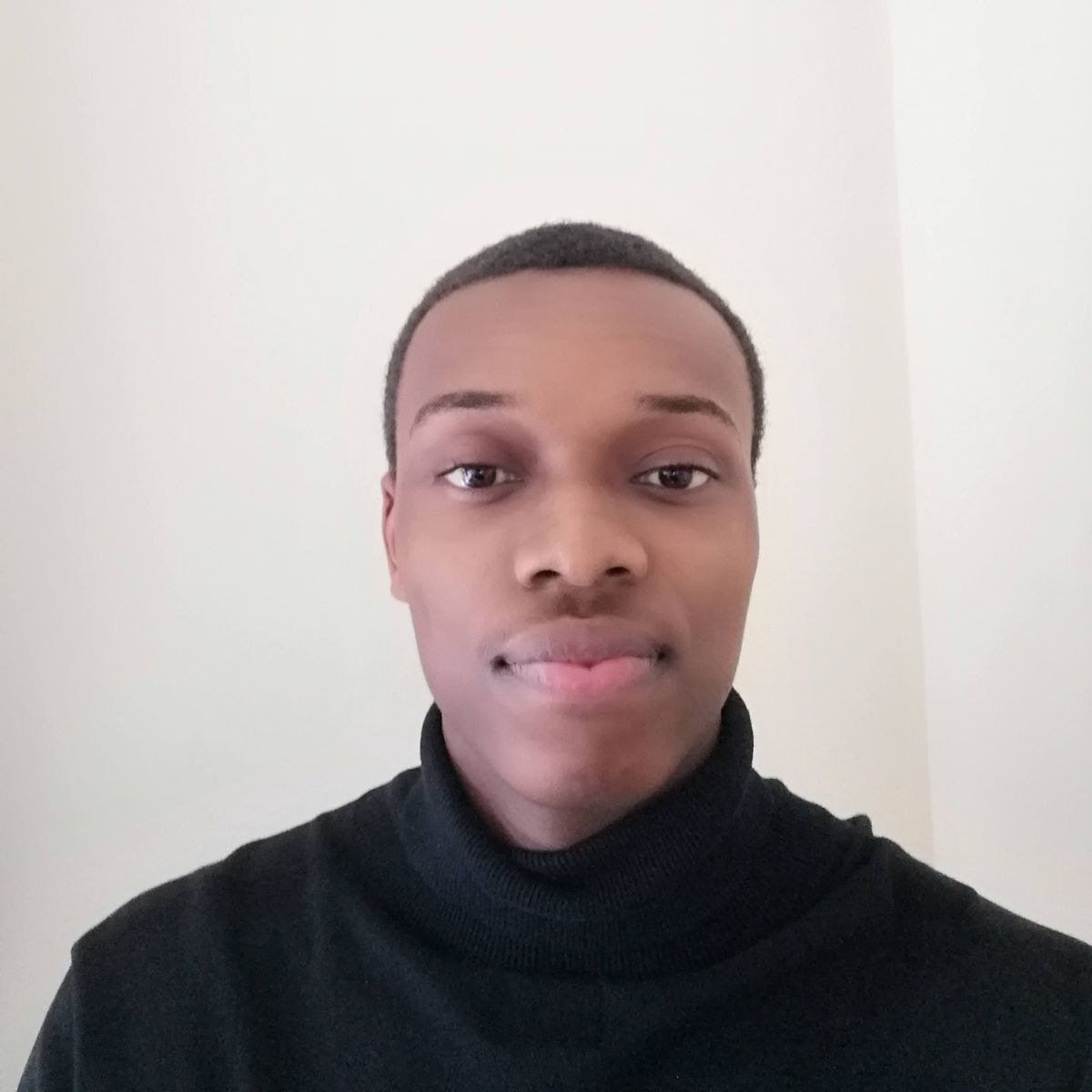
By Sam Ajakaiye Change. It’s such a small word which encompasses so much. So often I reflect on the various ways I want the world to change and yet I also find myself in a position where I must question whether this very act is naive. Negative change is surely worse than the status quo. Social (and, to a certain extent, political) conservatism is often predicated on this understanding that change can easily break down the good things we have whilst failing to replace them with anything of equal, let alone better, value. I am also a university student. University students are famed for their rampant desire for change and their youthful radicalism. In my first year at university, I have witnessed how a surge in the use of social media and a significantly greater awareness of international affairs has led activism to become commonplace amongst a generation of ‘Social Justice Warriors’. I am also a 19-year old black man who does not only feel society’s divides but actively studies the histories behind them in his degree. How could I not desire change when I see how hypocritical greed has led (and still leads) to the crippling of continents, communities and families in places like my homeland, Nigeria. Perhaps I wouldn’t because those same studies have bred within me a deep distrust for the leaders who have the greatest potential for change - stories of poor Nigerian governance are too numerous to count. If you are struggling to grasp where I lie on the political spectrum or what I want for the future of the world, welcome to the club! I do as well. However, I will clarify one thing for you - I do want change. It’s just that, whilst I am hopeful for a better future, I’m also sceptical about it. The reason why I am sceptical is that I have seen how the realisation of ideals doesn't just require more money, or more time, or more planning. They require people to change. If people don’t change the way that they act, the way they think about others (and themselves) and what they aspire towards, any real systematic change is not possible. For example, over the course of last year, systematic/institutional racism came to the fore of many debates once again. However, whilst systematic racism may have a completely different effect to interpersonal racism, it is certain that any system which places people at a disadvantage is rooted in decisions made by people, influenced by their personal approach to life and others. My hope for change is not rooted in seeing declarations made by governments which suggest that policy will be more aligned with the future I wish to see (otherwise I would be in love with the UN). It’s not when I see thousands of people gather on the streets to protest about problems of global importance. It’s not even when I am allowed to feed into conversations which are far beyond my pay-grade (I’m a student so I basically don’t have one) and share my visions for the world. My hope for change increases in those situations where all performance is stripped away and people are at their most open and vulnerable, yet I see genuine concern and kindness expressed towards others. When I see people truly empathise with each others’ struggles, regardless of whether they fully agree with their viewpoint, and have proactive and serious discussions marked by mutual respect. That’s because these are the types of spaces in which policy should be formed. These are the types of conversations that allow society to become naturally diverse. These are the types of people who will use influence to actually serve people rather than simply to boost their ego. Now, I will introduce a dose of scepticism here. As a Christian, the idea that everybody is flawed and has their own struggles is rooted in my worldview. However, I think I can confidently say that you don’t need the Bible to understand that humans aren’t perfect. There will always be people in power who are self-serving and people whose altruistic actions are only performative. But why should that ever be an argument to maintain the status quo? Instead, that fact should drive us to create as many open and genuine spaces as possible for people to learn about others and learn from others. We should prioritise creating opportunities for individuals to express themselves openly and then take each others’ concerns and opinions seriously. We should allow for debates which enable us to question each others’ views and find solutions to the different problems we experience and perceive. I am still sceptical about how many people will truly change from these spaces but that’s the thing about change - things will be uncertain. These conversations can only function as a starting point of change but, if we neglect this crucial initial point, how can we expect a different end product?
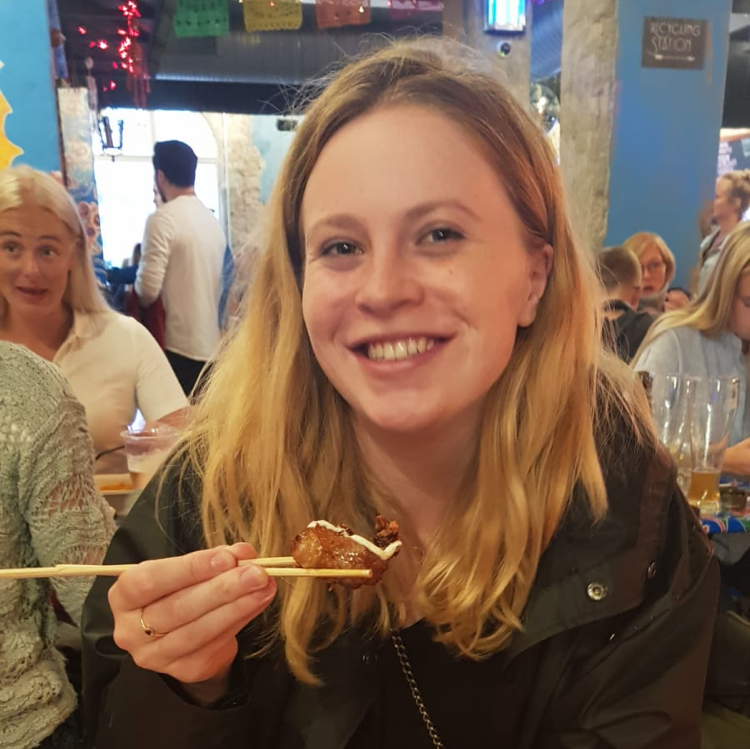
By Lauren Brown Food is something that connects us all – whether it’s a quick stir fry, a hungover takeaway pizza or a Sunday roast around the table with your family and friends. But it is also something that means different things to everyone. As you may be able to tell from the first sentence, a good Sunday roast reminds me of my family, whilst a pizza is my cure-all from a messier night than intended. Despite being a self-proclaimed foodie, and an enthusiastic if not always successful cook, how I feel about food and how it’s produced isn’t something I examine in detail too often. I know I love cooking and sharing food with others, I try to be a mildly successful vegetarian most of the time and I know cheese and chocolate are the primary reasons I would never go vegan. However, it wasn’t until I sat down as part of Flare Governance’s dialogue workshop at the BMW Foundation that I really examined this. Discussing topics from the social and cultural norms around food, to how we produce it, I began to think more and more about how food shapes my life. I began to question what I ate, why I ate it, and what I could do to create a world where I can balance my love for cheese with the environmental considerations of that. How could I feel connected to the food I ate, without knowledge of where and how it was produced, and under what connections? And how could I use food to connect to the people around me? Through discussions in smaller groups, we started to think of both what problems we saw in the world today and what we wanted the future of food to be. Answers to ‘fixing’ the food system varied from prioritising local produce, enriching the soil and inviting everyone to share food together. And at the heart of both these visions and solutions was a desire for food to be just and to work to connect us. It’s this that we should take forward, in order to challenge and to create a food system that is fair and just and belongs to all.

